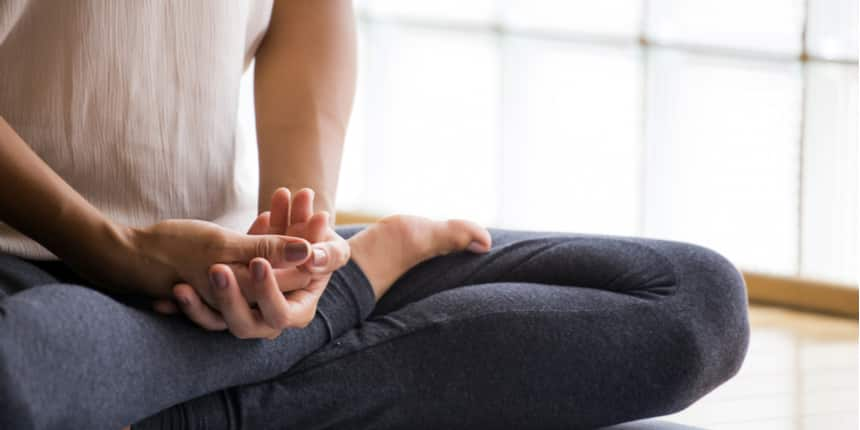Self-Care Tips To Feel Happy And Rejuvenated
The idea of self-care under the umbrella of self-love has been perpetuated as either some sort of unrestricted self-indulgence, or a strict adherence to self-centeredness. In the former, it often becomes an escape from one’s reality, while in the latter it might seem deprived of flavour, and often suffocating.

Many social media influencers and public figures curate ideas of taking a long bath with scented candles, eating cheesy dishes, going to a spa, reading, and so on, as self-care. While many business coaches and speakers promote the idea of being unrealistically self-reliant, and ‘hustle’ towards a self-centred goal.
In all of the therapeutic work I do as a psychologist, I have come to understand that a balance between self-compassion and self-discipline is the most effective way to care for the self. This is because when we were young, our parents created a maternal and paternal environment for us. Maternal and paternal are not equal to mother and father, but rather they are simply environments that either or both parents need to create for us to develop holistically. Confused? Let me explain!
Usually, the maternal environment is where we find comfort, are provided love, unconditional support, where creativity is fostered, we meet the abstract in us, and so on. The paternal environment is where we are challenged, where we receive the rules of life, where we are asked to think of alternatives and look at things from an analytical framework.
These environments are the fundamental framework we need across our life span, the only difference being, instead of relying on our parents as we begin to grow up, the onus falls on us to be able to provide it for ourselves.
Self-care, thus, is an act of recreating our parent’s care for us by parenting ourselves, or what is referred to as self-parenting. Furthermore, our parents could only parent to the level to which they were parented or learned to parent, and the trick is to go further than what we received (that way we also change how we will parent as adults).
Now let’s dive into what we can do to achieve this care.
Eat Like Our Ancestors
Our evolutionary system is based on what our animal-human ancestors ate. We are designed to eat plants, every kind of them. Our body craves and can support us best when it gets a variety of plant-based food, especially raw. So, make it a daily habit of eating fruits in the morning, and vegetables, whether cooked, boiled, or steamed, towards the evening.
Rest Is Key
Make it a point to get enough sleep. Not everyone needs 7 to 8 hours, some need 6, or even 4. Figure out your unique requirement and make it a daily habit to get that much sleep. Melatonin, the sleep hormone, is released post sunrise, so following the body clock when it comes to creating a sleep schedule will benefit you each day. Take a nap in the day, if needed. 15 to 20 minutes is enough to recharge us, and sleeping more than that will activate deep sleep which will inevitably get disturbed and make us irritable and lethargic.
Clean Your System
Make it a daily habit to go to the washroom. Have lots of warm water if you’re usually constipated. Skipping going to the washroom does not allow our body to throw out toxins, and thus makes us feel heavy and bloated.
Art Is Sustenance
Engage in some form of art daily, be it music, dance, painting, cooking, or anything that you like. A process-oriented experience of any art form is beneficial in non-verbal emotional expression. Engaging with art for its process takes away our constant need to achieve and be productive. Instead, being immersed in ‘creating’ art helps us enjoy the journey, reduces anxiety and worries, and exposes us to the content in our minds.
Work Out Your Woes
Studies on happiness, well-being, and life-span increment, all suggest the same thing - the need to work out as frequently as possible. Make workouts a part of your daily life, and make sure you push your heart rate for a few minutes each day by doing a high-intensity set as a part of this workout. Our bones and muscles need to be used everyday to keep our bodies in order, otherwise, their functioning might slow down. Endorphins, the hormones released after a workout, are responsible for making us feel good, stabilising our mood, as well as inducing a kind of high.
Stretch Frequently
Find time to stretch all parts of your body each day. Our sedentary lives force us into a kind of stiffness that becomes an everyday experience. So, it is important to stretch your muscles in the opposite direction of their usual movement and wean out the stiffness. Every hour or so, stretch your neck, back, and hands.
Give Your System A Break
Our stomachs are constantly being used to digest food. And the more food it has to digest, the more energy and blood it sucks away from our body each day. It is thus important to give this system some rest, maybe every month or so. It has been proven that many illnesses occur because we keep loading new material into our digestive system, without allowing it to rest.
On the same lines, practising intermittent fasting is helpful. Multiple studies have shown how intermittent fasting enables us to sleep better, and work more efficiently.
Read And Write
Whether you are under-thinking or over-thinking, the habit of reading and writing each day is helpful for both your brain and mind. Reading anywhere between 5 to 10 pages a day is helpful in learning, gaining knowledge, and understanding, while writing about a topic is helpful for introspection, analysis, and realisations.
Music For The Soul
We all usually have specific genres of music we enjoy, but there is a certain kind of music that is especially beneficial for our brains and minds. Meditative or instrumental music (especially Indian, or other oriental instruments) is truly music for our soul. 432 or 440 hertz is the usual frequency for such music, and has been proven to reduce clinical anxiety and stabilise mood. Find time, like when in a shower, to listen to such music and experience relaxation.
Practise Gratitude
Gratitude is essential. It is a fundamental principle that anything we acknowledge or hold gratitude for expands. So make it a point to thank not just other people, but also yourself and the supremacy of the universe for little things, especially those that we take for granted.
Journal
 Journal To Unburden Yourself
Journal To Unburden Yourself
Just as analytical and explorative writing is needed to open our minds, journaling is needed to open, unburden, and soothe our minds. Much happens during the day and many times, we do not get to break it down or talk about it in-depth, and so journaling is that space where we can explore something in-depth, many times leading to insights and healing.
Practise Acupressure
If there is a tool that can bring immediate relief and has a lasting benefit, it is acupressure. Lightly pressing the various pressure points on our palms and the soles of our feet removes blockages, drains toxins out of the body, and increases circulation. Practising face yoga and facial acupressure can reduce headaches, increase youthfulness, and decrease the signs of stress.
Visualise Your Future Self
The difference between daydreaming about the future and visualising our ideal self is that in the former we focus on just what feels good in general, while in the latter we consciously see how we wish to grow and who wish to become. Visualising motivates us to grow, to move forward in life, to have autonomy over who we wish to be. Make time every now and then to visualise your future and ideal self, as well as the life you wish to create for yourself.
Spend Time With Good People
There is a saying that goes like ‘Your network decides your net worth’. This does not apply just to financial net worth, but rather your character, mood, emotions, attitudes, coping mechanisms, how we see ourselves, and life is overall influenced by the people we spend time with. The people we spend time with dictate much in our lives because we are social animals, so allow only good people to access you.
Meditate
‘The body needs movement and the mind needs stillness’. No matter how cliché meditation sounds in self-care practices, it is key to creating stillness for our minds. The good news is not all meditation styles need you to sit down, some, such as ‘Dynamic Meditation’, can include movement and meditation together. These include Tai Chi, Qi Gong, etc. Meditation can be an everyday practice of 5 to 20 minutes before sleeping, or after waking up.
Get Sunlight
Sunlight is the most crucial nutritional component that our body needs. Our body cannot create Vitamin D and therefore, it needs the sun for it. Across the globe, the deficiency of Vitamin D is almost like an epidemic. Vitamin D is not just needed for the body, but also for the brain to reduce anxiety, depression, and maintain hormones.
Your own self is the first and closest thing you have, and anything or anyone else would come after that. So, to be able to do well in the other areas of your life, it is ideally yourself you should take care of, first and foremost. Keep working on yourself consistently and maintain a good balance of the mind-body-soul, and most other things are likely to fall in place for themselves.
Nilanjana Parijat is a depth-oriented, and holistic wellness psychologist, with extensive hands-on experience in working with children, adolescents and familes. She currently works with Reboot Wellness, Gurugram.
